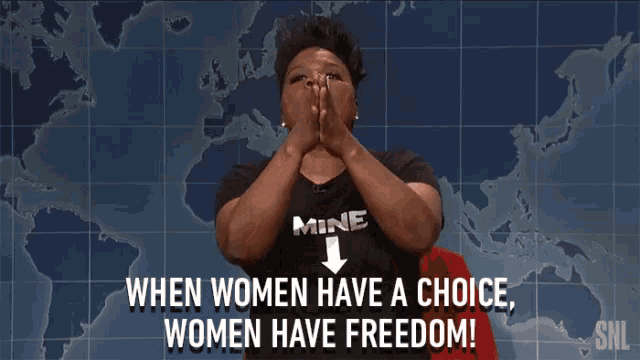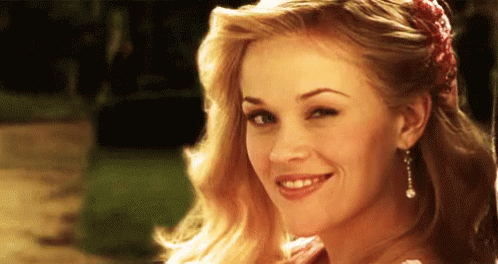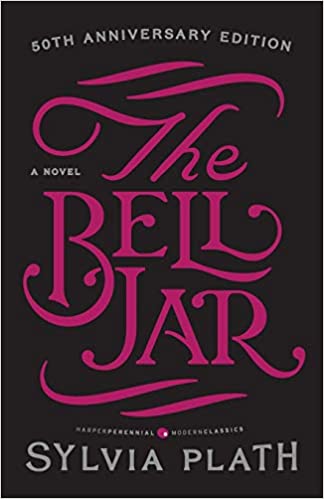The novel The Bell Jar by Sylvia Plath follows Esther Greenwood, a young woman who has recently started an internship in New York City, through a complicated peek into some of the most haunting corners of the psyche. The novel starts with Esther in NYC as she won a summer internship for Ladies’ Day magazine, and refines her passion for writing as she works for Jay Cee, the boss of the magazine. But the story is interrupted by memories of Esther and the present time. Esther talked about her current life and past. Which, she showed a glimpse of herself as a person and a look into her mentality. And while doing so, Esther talked about the views of virginity, marriage, and kids, as she looked at them to be a burden.
Now that you have an idea of the storyline, it is time to figure out the premise. Robert Mckee, in his essay, “Structure and Meaning” describes the premise as, “ the idea that inspires the writers’ desire to create a story” (112).
At first, I thought the premise was along the lines of, What if a girl is too focused on her virginity? But that did not click with me, so then I thought more about Esther’s character and thought about what perplexed me. I came up with this second version: What if a depressed young woman judges others? I noticed that Esther was a little judgmental; however, my group leader, Angelina, and I went back and forth about this and lingered in the aspects of the social norms. I had an idea of it being about judging others, while Angelina thought it would be about mental illness. But together, we came up with this current version: What if the pressure to be the ‘perfect woman’ triggered a psychotic break? With that premise, our ideas came together and matched.
You might be wondering what it means to be the perfect woman.
Well, there is an underlying view of marriage and virginity and the freedom of sex. I noticed how Esther viewed the girls in the internship, who seem to be there to find a man and marry. Esther said, “…and they were all going to posh secretarial schools like Katy Gibbs, where they had to wear hats and stockings and gloves to class, or they had just graduated from places like Katy Gibbs and were secretaries to executives and junior executives and simply hanging around in New York waiting to get married to some career man or other. These girls looked awfully bored to me” (Plath 4).
Esther is not interested in the rules of young girls going to New York to find a man and marry. She said to herself that they looked bored. She even said to Buddy Willard, a boy she was steady with but had grown to dislike when he proposed,
“‘I’m never going to get married.’
‘You’re crazy.’ Buddy brightened, ‘You’ll change your mind.’
‘No. My mind’s made up.’”
(Plath 93)
So with the premise, What if the pressure to be the ‘perfect woman’ triggered a psychotic break? That would lead us to identify the controlling idea, which Mckee defined as something that “may be expressed in a single sentence describing how and why life undergoes change from one condition of existence at the beginning to another at the end” (115). What does the controlling idea look like in The Bell Jar? I think it could be, Striving for perfection will help you fall into your place in the world. However, there is a counter controlling idea that works as a negative outlook of the premise. I believed this statement to be, Trying to be perfect because you were sad about the imperfections you have.
So here are the controlling ideas in action, Esther finds out that Buddy lost his virginity to a waitress, and they slept together about thirty times throughout their affair. Esther feels accosted by the whole experience. When she first started dating Buddy, she said, “he kissed me and said I must go out with lots of boys, he made me feel I was much more sexy and experienced than he was and that everything he did like hugging and kissing and petting was simply what I made him feel like doing out of blue, he couldn’t help it and didn’t know how it came about” (70). In this instance, Esther feels perfect and embodies the idea. Her place with Buddy is emerging and is starting to look quite comfortable.
Buddy made Esther feel sexy, perfect, and valuable, only to find out that his pureness no longer existed. Buddy, and especially his overbearing mother, rant and rave and preach virginity for both men and women until marriage. He acts like a hypocrite, and she laments as such, “What I couldn’t stand was Buddy pretending I was so sexy and he was so pure when all this time he’s been having an affair with that tarty waitress and must have felt like laughing in my face” (71). Now, after Esther learns about the affair, she feels inadequate, invaluable, and used. Her ‘perfectness’ was ripped away from her.
In another instance, Esther finds power in the controlling idea again. After deciding to get a diaphragm implanted, a method of birth control, she feels freedom with her virginity and sexuality. Esther thinks to herself, “I am climbing to freedom, freedom from fear, freedom from marrying the wrong person, like Buddy Willard, just because of sex…” (Plath 223). Here, Esther finds a way to achieve those feelings of perfection again. She no longer has to be as concerned with holding onto her pureness. Now she can feel sexy of her own accord.

Notice the difference between controlling and counter ideas. With the controlling, Esther felt freedom after getting the diaphragm because she was able to choose who to sleep with and not wait for marriage. While she may have regretted picking the wrong husband, and although the controlling idea is about being perfect, it leads you to make your own choices and find your perfections. The counter, on the other hand, lingers in those moments where Esther does not feel perfect. It sat with her and followed her. It reminded her that Buddy was free to sleep with as many people as he pleased. It reminds her that a woman is not allowed to sleep around unless she wants to be deemed easy, or a slut. In a perfect world, a woman would wait.
To further illustrate how the ideas are at play in The Bell Jar, the following is a narrative value graph. Here critical moments from the text are plotted to show how the charges of the text move between positive and negative.
As I read through The Bell Jar, I wondered what’s at stake for me? I wonder about Plath as I knew that she had depression and sadly committed suicide in my writing class. So I yearned to know how much of her experience was in the novel, or was Esther Plath, but with a new name and possibly background. I guess the stake for me was that The Bell Jar was not what I thought it would be. It was more mysterious, scary, and clever, and I read it to figure out the meaning behind the text, which made me a thematic reader as I read to know the meeting within the context, as Professor Kopp explained on his website. And what I learned between the lines that even if the story was directly about Plath, every woman could relate to it in some way or another, which made it a whole lot more interesting.




I thought it was crazy how I felt this story related a lot to the last book we read and how I constantly blamed the mental illness just like the last book. But since the last book we read I did feel like I can’t just focus on her mental illness and I tried to look up the bigger picture.I feel like she is constantly judging people just like you said in your blog. Although there are moments that I do see her mental illness take over. I also feel that Esther is alone, she isnt connecting with the other girls in her hotel. But when it comes to guys, she constantly compares herself with different men and how if she married them she would be happy with a perfect family, but when it came to Billy I felt that even though she said she didn’t like him she still thought of him and how he wanted to be with her. I felt that she had to keep reminding herself she didn’t want to be with him. When I see Esther go through her depression and the pain she’s going through, I almost feel that I was Esther. I lost someone to depression and suicide so when I was reading and seeing her in this pain it almost answered my question as to why? Or how? I felt this story hit differently then any story I have ever read.
LikeLike
Hello Paige, You and Angelina both bring up good points in trying to figure out Esther’s’ own internal struggle. She is judgmental and she is struggling with a mental illness. I think the two of you are onto something with the idea that the pressure to become the perfect woman caused a psychotic break, but I want to modify it a bit. What if she was nurtured into acquiring a mental illness due to the pressure of being acceptable into society. After all, what even is a perfect woman? Everyone will have a different answer for that, but there does seem to be a general standard as to what is considered acceptable. After all, women are expected to build a career, start a family, be a mom, and be successful at raising kids while meeting the standards for both their mentality and their looks. I think there is more to Esther than just her having a psychotic breakdown from the pressure of society, after all she is judgmental herself. What if she was nurtured into becoming just like everyone around her and it broke her mentally? I think that is also worth paying attention to with her inner struggles.
LikeLike
I think we can dig deeper into the controlling and opposing ideas. These elements are ever-evolving. So it’s not that they are either “correct or incorrect” but each version is at a different stage of development and revision. I’d like to expand them, and maybe add another revision to these. Right now the controlling idea stands as: Striving for perfection will help you fall into your place in the world. Which is true and completely valid. I’d like to propose something like: Suppress your individual thoughts and conform to other’s expectations in order to be fulfilled. Even this version doesn’t feel completely right like we’re getting closer and closer to the center of the target maybe. But this version brings us closer to how the impositions of others affect Esther. In the controlling idea, it’s positive, her only option, the only way she can survive and live a life of value. Now let’s turn to the counter idea which is currently: Trying to be perfect because you were sad about the imperfections you have. This one is missing that other half, we have the cause but not the effect. What happens when you depress yourself because of your imperfections? I’d like to propose this version of the counter idea: Distinguishing yourself from others will lead to suffering and loneliness. Now we see cause and effect, If you’re individual and break the status quo, you will suffer. You will not be fulfilled, be miserable, etc, etc. It’ll be interesting to see the next revision of the controlling and counter ideas.
LikeLike